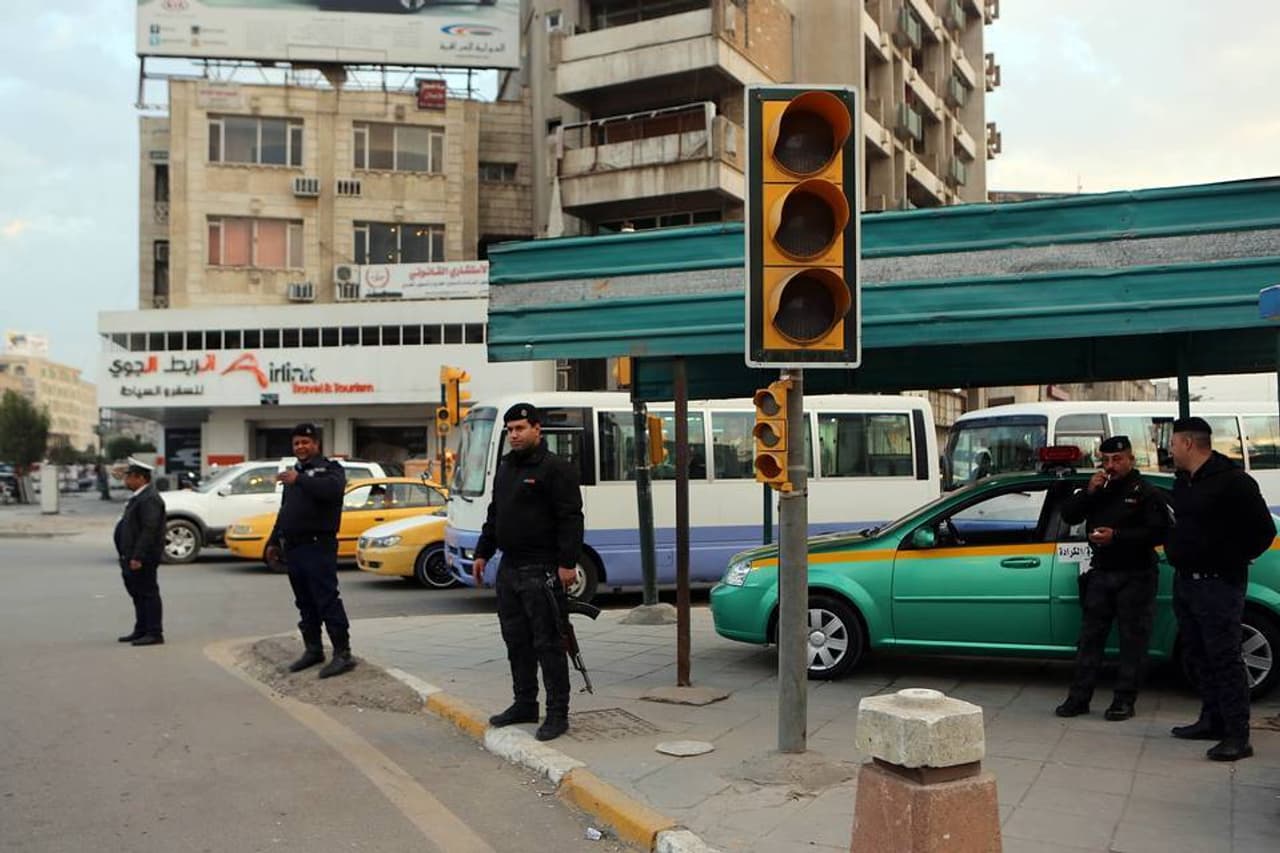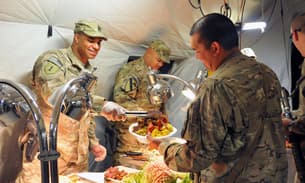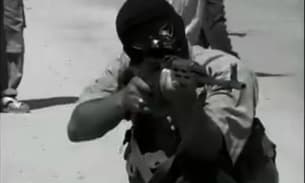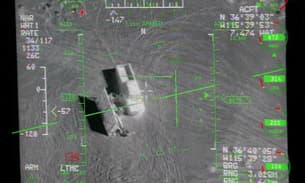
Baghdad kidnappings: Were American civilians working for US defence giant?
Iraqi security forces on streets of Baghdad Monday searching for three Americans reported kidnapped by Shiite militia (Photo: AP)
Two of three missing US civilians kidnapped by Shiite militia forces in Baghdad at the weekend are believed to have been working on a “critical” multimillion dollar deal to train Iraq’s counter-terrorism forces in the fight against the so-called Islamic State.
The Bureau has learned that a contract for US defence giant General Dynamics to provide services to Iraq’s government was quietly renewed by Washington without any formal tendering process towards the end of last year.
The deal had to be rushed through, according to a Federal procurement document, which stated: “Time is critically short due to the nature and complexity of international negotiations and agreement.”
The value of the renewed contract, which started last month, is not yet known but the previous 12-month deal that expired in November was worth $4.4million.
The question of using American contractors to train Iraq’s special forces has now been thrown into sharp focus.
A senior Iraqi military official told the Wall Street Journal yesterday that two of the three contractors kidnapped by Iran-backed forces from a private home in Baghdad over the weekend were military trainers working for General Dynamics.
The Journal reported their names as Amro Mohammed, an Egyptian-American, and Wael al-Mahdawy, an Iraqi-American. It also cited a police official naming the third as Russel Furat, an Iraqi-American woman.
It is not known whether she also works for General Dynamics, which is headquartered in Virginia. The US State Department has confirmed the abductions as searches continue.
General Dynamics had not at the time of publication responded to the Bureau’s request for comment.
The rise of Islamic State has undermined confidence in Iraq’s police and security system, with Shiite militias becoming increasingly aggressive in an unstable environment.
It was this fragile situation which formed the backdrop to negotiations about the special forces training contract last year.
Iraq’s Special Operations Force (ISOF) is part of the country’s Counter Terrorism Service, and it was Baghdad which asked Washington to help arrange a training provider.
The company’s 2014 contract was due to expire at the end of November 2015, but delays by Baghdad in requesting a new deal meant the Pentagon had to scramble to avoid a period in which there would be no cover.
The procurement document unearthed by the Bureau said General Dynamics “possesses both the manpower and resources to continue providing critical sustainment training to the ISOF to improve their capacity deter, prevent, disrupt, capture and prosecute known terrorists and terrorist organisations in Iraq”.
According to the document, General Dynamic contractors are providing “sustainment training” for ISOF’s 1st Brigade and subordinate units. They work in the ISOF compound near Baghdad International Airport but “may be required to operate at other locations on a temporary basis”.
The ISOF was a key frontline force in the recent defeat of Islamic State in the western Iraqi city of Ramadi.
Iraq’s Special Operations Forces were created by the Americans in 2003. They were trained by the US military, but continuing this training became more complicated after the agreement granting US forces in Iraq immunity from prosecution lapsed in 2011.
The American military presence in Iraq is fraught with controversy.
Last month, Iraqi prime minister Haider al Abadi declined the White House’s offer of Apache helicopters and extra US military advisers in the fight for Ramadi.
There was much less publicity accompanying the US offer of contractors however.
As well as the General Dynamics contractors, there are 3,500 uniformed US personnel in Iraq who are reported to be in training or advisory roles.
In the absence of a formal agreement granting them immunity from prosecution, these troops are protected by an exchange of diplomatic notes.
The Bureau has been investigating the use of contractors by the US military.




